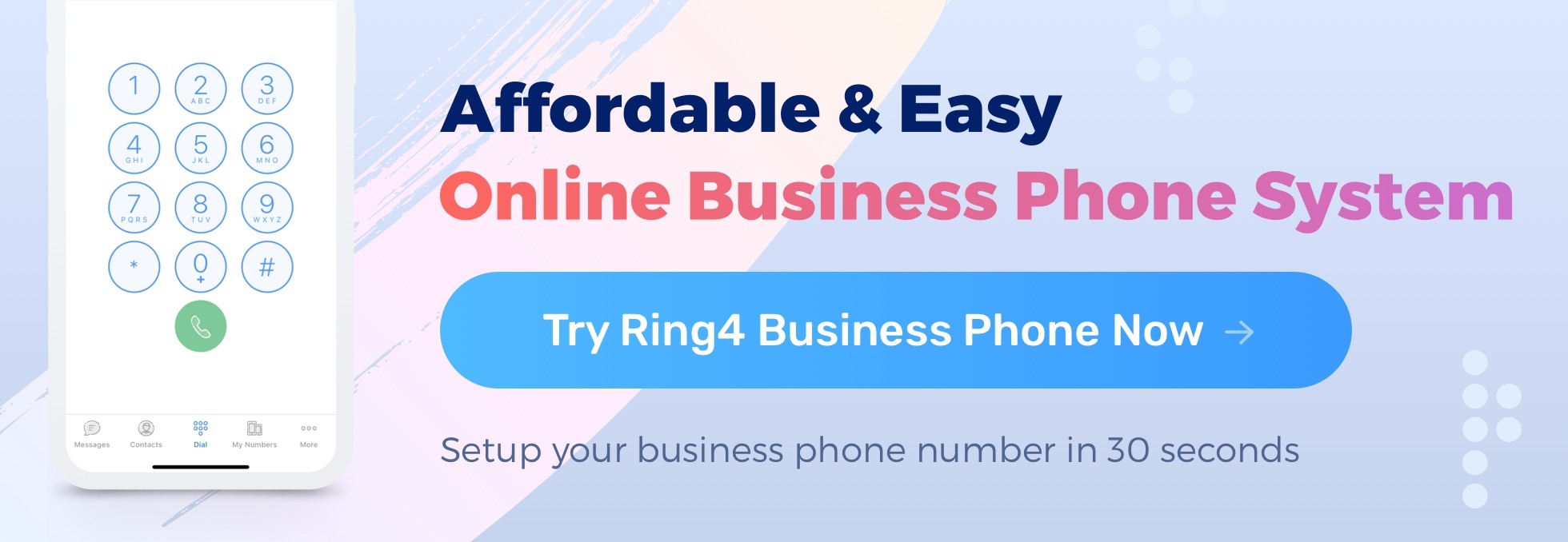In this post we’ll take a look at the use cases of VoIP for the manufacturing industry. Believe it or not, VoIP is revolutionizing the way that manufacturing companies communicate and track important information.
By using this cutting-edge technology, companies just like yours can easily facilitate communication between different departments and plants. With the help of this technology you can monitor production processes in real-time as well. Read on to learn why manufacturers are turning to VoIP to keep track of their supply chain logistics, inventory levels, and production output.
Top 10 Uses of VoIP for Manufacturing Companies
VoIP helps manufacturing companies in several ways. Here are just ten of them:
- VoIP can help mitigate security threats
- It offers businesses improved call quality and scalability
- VoIP can offer flexibility, mobility, and cost savings
- It can optimize customer service
- You can use it to provide employees the same phone features and services regardless of their location
- It can be used to create virtual private networks
- You can also use it to reduce travel costs
- VoIP can help to reduce the costs of long-distance calls
- It can be used to provide real-time support to customers and employees
- Finally, VoIP can be used to provide an easier way to transfer data and files.
Now that you know the 10 uses of VoIP for the manufacturing industry, let’s break them down further. If you’re on the fence about whether or not to switch to VoIP, this may help you with your decision.
VoIP can help mitigate security threats like fraudulent phone calls, providing encryption and other IP technology advancements.
VoIP technology has revolutionized the way we communicate over the internet. With its immense benefits, it has also brought in some security threats like phishing, call hijacking and eavesdropping. However, with advancements in IP technology and encryption methods, VoIP can help mitigate these security concerns.
One of the most significant advantages of VoIP is its ability to provide end-to-end encryption for all communication channels. This ensures that no unauthorized access occurs during voice or data transmission. Additionally, using digital signatures and certificates helps ensure the authenticity of callers and assists in preventing phone number spoofing attacks.
Another way that VoIP can help mitigate security threats is by providing multi-factor authentication mechanisms before calls are connected. This adds an extra layer of protection against fraudulent activity since only authorized users can access specific communication systems.
VoIP offers businesses improved call quality and scalability, allowing them to take advantage of available bandwidth.
With VoIP, companies can make calls using the internet instead of traditional phone lines, which offers several advantages. Not only does VoIP offer improved call quality and scalability, but it also allows businesses to take advantage of available bandwidth.
One of the biggest benefits of VoIP is its ability to offer better call quality than traditional phone systems. This is because VoIP relies on digital signals that are transmitted over the internet, resulting in clearer audio with less background noise. Additionally, because VoIP uses internet connections instead of dedicated phone lines, there's no need to worry about issues like static or interference.
Another benefit of VoIP is its scalability. With quality VoIP service providers like Ring4 your business can add as many lines as you want on a month to month basis, and reduce lines when you need to scale back.
Hosted VoIP phone services offer manufacturing companies flexibility, mobility, and cost savings
The manufacturing industry is constantly evolving, and companies must adapt to remain competitive. One way for manufacturers to stay ahead of the curve is by implementing hosted VoIP phone services. These services offer a wide range of benefits, including flexibility, mobility, and cost savings.
With hosted VoIP phone services, manufacturing companies can enjoy increased flexibility in their communication systems. Unlike traditional phone systems that tie employees to their desks, VoIP allows users to take calls from anywhere with an internet connection. This means that employees can work remotely or on-the-go without missing important calls or messages.
In addition to flexibility, VoIP also provides greater mobility for manufacturing companies. With features such as call forwarding and unified messaging, employees can easily stay connected while traveling or away from the office. This level of connectivity can help businesses optimize their operations by enabling workers to collaborate efficiently regardless of location.
VoIP is also significantly cheaper per line when compared with the costs of traditional phone lines and hardwired options.
VoIP can help to optimize customer service by making it easier to reach and provide assistance to customers.
Using VoIP for the manufacturing industry enables companies to easily optimize customer service. For example, one of the main advantages of VoIP is that it makes it easier for customers to reach companies and vice versa. Since VoIP systems are not tied to specific locations or devices, customers can contact businesses from any location using their preferred devices such as smartphones, tablets or laptops. Additionally, VoIP supports various communication channels such as voice calls, video calls and instant messaging which allow customers to choose their preferred method of contacting customer support agents. As a result, VoIP helps companies provide faster assistance to customers.
VoIP can be used to provide employees with access to the same features and services regardless of their location.
With VoIP, employees can now access the same features and services on their phones regardless of their location, making it easier for companies to expand their workforce globally. For example, if you use the Ring4 Business Phone System, the app’s interface is the same whether you’re making calls in France, Italy, or in the United States. This means everyone who uses it has equal access!
One of the most significant benefits of VoIP is that it allows employees to work from anywhere as long as they have a stable internet connection. This feature makes remote working more accessible and flexible, enabling companies to save on office space costs while maintaining productivity levels. Additionally, with mobile VoIP solutions, employees can use their personal devices such as laptops or smartphones to make calls without additional hardware requirements.
VoIP can be used to create virtual private networks, allowing companies to provide secure access to data.
In today's digital age, businesses require secure access to their data. Virtual Private Networks (VPNs) are a popular solution for companies who need secure access to their data without incurring the costs associated with physical private networks. VoIP can be used to create VPNs that provide a secure and reliable connection by encrypting their communications, making it difficult for unauthorized users to intercept or steal sensitive information.
VPNs created using VoIP technology are cost-effective and scalable solutions for businesses of all sizes. They offer several advantages such as easy setup, remote accessibility, high-speed connectivity, reliability, and security.
VoIP can be used to reduce travel costs, as employees can participate in meetings remotely.
The rise of VoIP solutions that are available today has made remote work more accessible than ever before, and one area where it can have a significant impact is in reducing travel costs. With VoIP, employees no longer need to be physically present at meetings or conferences to participate fully. Instead, they can join from their desks, homes or other locations using just an internet connection.
This not only saves time and money on travel expenses but also helps companies reduce their carbon footprint by cutting back on air travel. In addition to cost savings, remote participation via VoIP can lead to greater flexibility for employees who might otherwise struggle with the logistics of attending meetings in person.
Another advantage of using VoIP for remote meetings is that it allows for more efficient collaboration between team members. Participants can easily share documents, presentations and other materials over the platform in real-time without needing to worry about compatibility issues or file size limitations.
VoIP can help to reduce costs associated with long-distance calls, by routing calls over the internet.
Traditionally, long-distance calls were made over physical telephone lines, which incurred high charges due to the distance involved. With VoIP technology, however, long-distance calls can be routed over the internet at a fraction of the cost. This is because VoIP providers don't have to pay for expensive infrastructure like traditional phone companies do. Instead, they use existing broadband connections to transmit voice data packets across the web.
VoIP can be used to provide real-time support to customers and employees, reducing response times.
Imagine being able to provide real-time support to those who need it. By using VoIP, businesses can reduce response times and ensure that issues are resolved quickly and efficiently.
One way in which VoIP is used for real-time support is through call centers. With VoIP, call center agents can handle multiple calls simultaneously, reducing wait times for customers and improving overall efficiency. Additionally, calls can be routed to the appropriate agent based on their skills and availability, further streamlining the process.
Another advantage of using VoIP for real-time support is its flexibility. Employees can access company resources from anywhere with an internet connection, making it easier to support customers remotely and/or provide support outside of typical business hours.
VoIP can be used to provide an easier way to transfer data and files, without having to rely on physical storage media.
Not having to rely on physical storage media to transfer data and files makes VoIP an ideal solution for businesses looking for a more efficient and cost-effective way of sharing information. One of the main advantages of using VoIP for data transfer is that it eliminates the need for physical storage media such as USB drives or external hard drives. This not only saves money on storage costs but also reduces the risk of losing important data due to damage or theft. With VoIP, files can be easily transferred between devices using cloud-based services, making it much easier for teams to collaborate and work together in real-time.
Conclusion and Next Steps
In conclusion,VoIP is a great tool for manufacturing companies to use for communication and production management. Its ability to provide clear, cost-effective communication makes it an invaluable asset for any company looking to stay competitive in the marketplace. Additionally, its ability to track important information and monitor production processes help manufacturers become more efficient and productive. VoIP allows companies to save time and money while delivering high quality results that can be shared with everyone inside or outside of the company.
Want to learn more about Ring4’s Mobile VoIP solutions? Click here to try it for free today!

